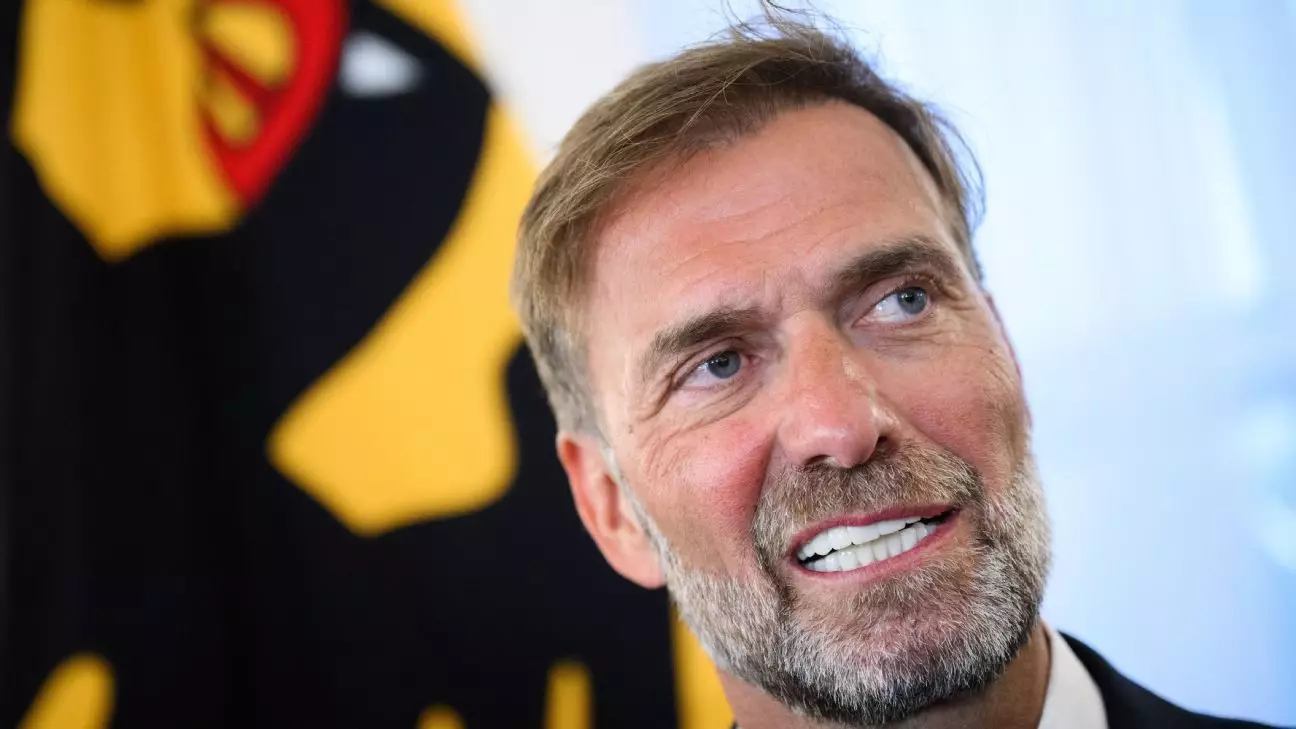Jürgen Klopp’s latest career shift—taking the helm of Red Bull’s global football operations—has generated significant discourse among football fans and analysts. The German manager, known for his charismatic leadership and tactical prowess, will begin this role in January, marking a notable departure from his illustrious tenure at Liverpool. While some see this as a strategic move that could enhance the competitive landscape in football, others see it as a betrayal to the clubs that helped shape Klopp’s legacy. This juxtaposition serves as a reflection of the complexities inherent in modern football.
The anticipation of Klopp’s appointment was met with immediate skepticism, particularly from supporters of his former clubs, including Borussia Dortmund and Mainz. Many fans perceive Red Bull’s involvement in German football as emblematic of a corporate ethos that undermines the traditional values of the sport. This criticism reflects broader concerns about commercialism in football, where success is often equated with financial investment rather than grassroots development. Klopp himself acknowledged the backlash during a candid interview, subtly indicating that regardless of his decisions, he would face discontent from some quarters.
Klopp stated, “I really don’t know what exactly I could have done for everyone to be happy.” This admission underscores the challenges faced by prominent figures in football; their choices often resonate beyond their immediate responsibilities and directly impact fans who feel emotionally connected to their clubs.
Klopp pointed out that he has never regarded Red Bull’s entry into football in a strictly negative light. He argued that the Leipzig initiative, in particular, has revitalized professional football in areas that were struggling post-reunification in Germany. This perspective draws attention to the duality of corporate involvement; while it may seem greedy or invasive, it can also catalyze growth and excitement in less-established regions of the sport.
The Leipzig project has attracted high-profile talent and exhilarating football to an area previously starved of top-level competition. From Klopp’s viewpoint, this endeavor reflects an opportunity for growth rather than a corporate takeover threatening the soul of football. This assertion invites nuanced discussions about how corporate entities can coexist with traditional clubs and whether they can be agents of positive change.
In taking on this new role, Klopp described his position more as an advisory capacity than as a chief decision-maker. Such a framing indicates a thoughtful approach to what could have easily been perceived as a power grab. He emphasized the solitude often experienced by coaches in professional settings, suggesting that his guidance could help foster a more collaborative environment among coaching staff at various Red Bull clubs.
This perspective showcases a unique aspect of Klopp’s personality—his recognition of the psychological aspects of coaching. By prioritizing team cohesion and mutual support, he could potentially alter the dynamics within these clubs, promoting a culture of shared responsibility that prioritizes long-term success over immediate results.
At 57, Klopp’s admission that he plans to take a “long break” from being on the touchline reflects a growing trend among elite coaches who seek to balance their professional commitments with personal well-being. His acknowledgment of the demands of coaching—both physically and emotionally—strikes a chord with many in the industry, signaling a shift in how coaches evaluate their careers.
While the world of football may also be wary of Klopp’s involvement with Red Bull, it can be viewed as an opportunity for him to redefine what leadership looks like in the sport. Rather than merely focusing on tactics and results, Klopp could emerge as a guiding figure who champions a progressive vision for the future of football—one that not only fosters talent but also respects the culture and history of the clubs involved.
Jürgen Klopp’s decision to join Red Bull signifies a pivotal moment in his career, intertwined with broader themes of commercialism, identity, and the future of football. By balancing his love for traditional clubs with the realities of modern football, Klopp may redefine the role of an elite manager in today’s football landscape. This development is not just about Klopp; it is a reflection of changing paradigms within the sport, encapsulating the struggle for authenticity in an increasingly commercialized world. As fans and analysts alike await his contributions, one thing remains clear: his journey is far from over.

